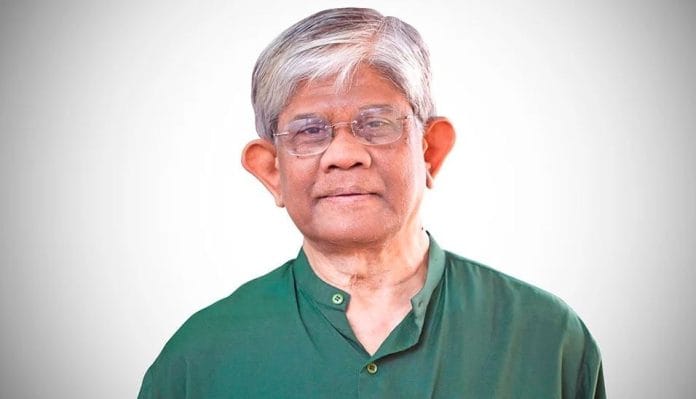Despite signs of recovery from a precarious economic position just a year ago, Bangladesh’s most urgent challenge now lies in restoring business confidence and reigniting momentum in the private sector, according to Finance Adviser Dr. Salehuddin Ahmed.
Speaking to journalists on Wednesday after meetings of the Advisers Council Committees on Government Purchase and Economic Affairs at the Secretariat, Dr. Ahmed acknowledged that while macroeconomic indicators show signs of improvement, the slowdown in trade and investment persists, driven largely by lingering uncertainty and cautious business sentiment.
“The economy has climbed back from the edge of the cliff,” he said. “But the real test ahead is not just managing inflation, employment, energy supply or tariffs—it’s reviving investor confidence and accelerating business activity, which have significantly slowed down.”
Dr. Ahmed emphasized that the government is focusing on projects that can be implemented quickly and have a direct impact on improving the business environment. “We are prioritizing initiatives that ease and encourage trade and commerce,” he added.
In response to a question on inflation, he said that it will take more time before people feel any real relief. “It’s not like pulling the reins of a horse and it stops immediately. Inflation doesn’t respond that way. Non-food inflation, in particular, remains a significant challenge.”
Regarding concerns over the upcoming national election and budget deficit, he said the government is prepared. “There won’t be any problem funding the election. As per provisional accounts, the budget deficit currently stands at only 3.6 percent—well within the 4.5 percent target.”
Addressing reforms, the adviser said several immediate measures have already been taken, while some medium- and long-term actions are in progress. “Banking sector resolution will take some more time—Bangladesh Bank is preparing a roadmap.
The capital market is trying to improve, and we expect to see better results. On the tax front, we plan to revise the ordinance quickly, and our target is to implement key reforms by December.”
When asked about the recent U.S. tariff determination, Dr. Ahmed said, “It would’ve been better had the tariff been a bit lower, but what they’ve done is not entirely unreasonable. I wouldn’t call it comfortable, but it’s manageable. We certainly would have preferred no counter-tariffs. The global situation is already tough.”
He noted that compared to many other countries, Bangladesh is not in a particularly poor position. “We have strong footing in RMG. Our knitwear and textile sectors are well-positioned to adapt. Woven may face a few challenges, but we’re not starting from scratch.”
On the possibility of renegotiating tariffs with the U.S., he confirmed, “Yes, there will be fresh negotiations. Commerce Adviser Mr. Bashir hasn’t arrived yet, but I’ve spoken with the Vice President of the U.S. Chamber of Commerce. Their perception of Bangladesh is very positive. They said, ‘You returned Chevron’s money, you paid MetLife—Bangladesh doesn’t block payments.’ That builds confidence. The business community has a good attitude towards us.”
Dr. Ahmed added that no formal agreement has been signed yet. “Once the agreement is formalized, we’ll examine where we can reduce duties and identify what we may need to import.”
Responding to a question about transparency in negotiations, he explained that such talks are not always public. “This isn’t a multilateral negotiation like the WTO or the UN, where everything is disclosed. It’s one-on-one. Our competitors include Vietnam, China, North and South Korea, India, Pakistan—so some elements naturally remain confidential.”

